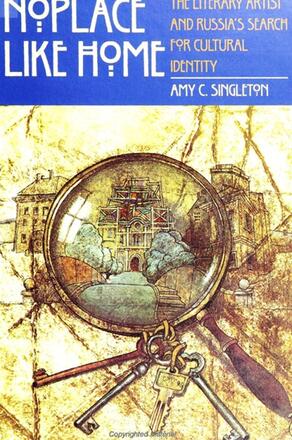
Noplace Like Home
The Literary Artist and Russia's Search for Cultural Identity
Alternative formats available from:
Explores the way that four major works of Russian literature--Gogol's Dead Souls, Goncharov's Oblomov, Zamiatin's We, and Bulgakov's The Master and Margarita--define a cultural "self" for the Russian people. Focusing on the deep cultural currents that pull Russian society in contradictory ways, Noplace Like Home also explores the writer's struggle to overcome these tensions through the creation of a literary utopia.
Description
Noplace Like Home uses four masterpieces of Russian literature--Nikolai Gogol's Dead Souls, Ivan Goncharov's Oblomov, Evgenii Zamiatin's We, and Mikhail Bulgakov's The Master and Margarita--to show the successes and failings in Russia's search for home and self. Interdisciplinary in spirit, Noplace Like Home introduces Russian culture for the first time to the field of "home studies," which explores human identity in terms of man's relationship with domestic space. This broad social context, together with general cultural patterns expressed in the novels, encourages readers to consider even the most current events in Russian society--where identity and stability are again key issues--in terms of "home," "homelessness," and "noplace. "
Amy C. Singleton is Assistant Professor in the Department of Modern Languages and Literatures at the College of the Holy Cross.
Reviews
"I like the book's conceptual sophistication, literary insight, and clarity of exposition as it traces a central idea in the Russian literary and cultural consciousness. I also like the way the author so convincingly demonstrates the broad ramifications of the idea she traces, and the way she shows--so naturally and gracefully--the profound interconnectedness between social behavior and aesthetic expression in Russia
"The book is full of considered and original thinking as it utilizes the works of highly respected scholars in the field. It constitutes an admirable blend of received truths and original thinking, making its claims hard to refute. " -- Stanley J. Rabinowitz, Amherst College
"This is a brilliantly conceived and executed study of the concept of home/homelessness as central in Russian literature in the nineteenth and twentieth centuries. " -- Janet G. Tucker, University of Arkansas